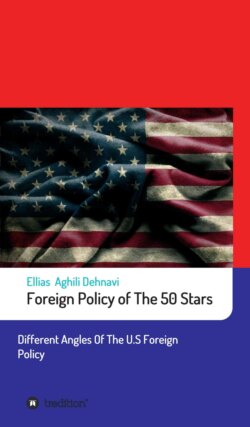Читать книгу Foreign Policy of The 50 Stars - Ellias Aghili Dehnavi - Страница 9
На сайте Литреса книга снята с продажи.
ОглавлениеHOW TO LEARN ABOUT THE DIFFERENCES AND SIMILARITIES OF THE INSTRUMENTS OF POWER
Comparing the instruments of statecraft according to their fungibility is a difficult task. We do not have a large body of empirical studies that systematically analyze the comparative fungibility of a state's power assets. The few studies we do have, even though they are carefully done, focus on only one or two instruments, and are more concerned with looking at assets within specific issue areas than with comparing assets across issue areas. As a consequence, we lack sufficient evidence to compare power assets according to their fungibility. Through a little logic, however, we can provide some ballpark estimates.
Consider what power assets a state owns. They include: population— the size, education level, and skills of its citizenry; geography—the size, location, and natural resource endowment of the state; governance —the effectiveness of its political system; values—die norms a state lives by and stands for, the nature of its ideology, and the extent of its appeal to foreigners; wealth—the level, sources, and nature of its productive economy; leadership—the political skill of its leaders and the number of skillful leaders it has; and military power—the nature, size, and composition of its military forces. Of all these assets, wealth and political skill, look to be the most versatile; geography and governance, the least versatile, because both are more in the nature of givens that set the physical and political context within which the other assets operate; values and population, highly variable, depending, respectively, on the content of the values and on the education and skill of the populace; and military power, somewhere between wealth and skill, on the one hand, and geography and governance, on the other hand, but closer to the former than to the latter. In rank order, the three most fungible power assets appear to be wealth, political skill, and military power.
Economic wealth has the highest fungibility. It is the easiest to convert into the most liquid asset of all, namely, money, which in turn can be used to buy many different things—such as a good press, top flight international negotiators, smart lawyers, cutting-edge technology, bargaining power in international organizations, and so on. Wealth is also integral to military power. A rich state can generate more military power than a poor one. A state that is large and rich can, if it so chooses, generate especially large amounts of military power. The old mercantilist insight that wealth generates power (and vice-versa) is still valid.
Political skill is a second power asset that is highly fungible. By definition, skilled political operators are ones who can operate well in different policy realms because they have mastered the techniques of persuasion and influence. They are equally adept at selling free trade agreements, wars, or foreign aid to their citizens. Politically skillful statesmen can roam with ease across different policy realms. Indeed, that is what we commonly mean by a politically skillful leader—one who can lead in many different policy arenas. Thus, wealth and skill are resources that are easily transferable from one policy realm to another and are probably the two most liquid power assets.
Military power is a third fungible asset. It is not as fungible as wealth or skill, but that does not make it illiquid. Military power possesses versatility because force is integral to politics, even when states are at peace. If force is integral to international politics, it must be fungible. It cannot have pervasive effects and yet be severely restricted in its utility. Its pervasive effects, however, can be uniformly strong, uniformly weak, or variable in strength. Which is the case depends on how military power affects the many domains, policy arenas, and disparate issues that come within its field. At the minimum, however, military power is fungible to a degree because its physical use, its threatened use, or simply its mere presence structure expectations and influence the political calculations of actors. The gravitational effects of military power mean that its influence pervades the other policy realms, even if it is not dominant in most of them. Pervasiveness implies fungibility.
In the case of military power, moreover, greater amounts of it increase its fungibility. Up to a reasonable point, more of it is therefore better than less. It is more desirable to be militarily powerful than militarily weak. Militarily powerful states have greater clout in world politics than militarily weak ones. Militarily strong states are less subject to the influence of other states than militarily weak ones. Militarily powerful states can better offer protection to other states, or more seriously threaten them, in order to influence their behavior than can militarily weak ones. Finally, militarily powerful states are more secure than militarily weak ones. To have more clout, to be less subject to the will of others, to be in a stronger position to offer protection or threaten harm, and to be secure in a world where others are insecure— these are political advantages that can be diplomatically exploited, and they can also strengthen the will, resolve, and bargaining stance of the state that has diem. Thus, although military power ranks behind wealth and skill in terms of its versatility, it can be a close third behind those two, at least for those great powers that choose to generate large amounts of it and then to exploit it.
